Local election results in maps and charts
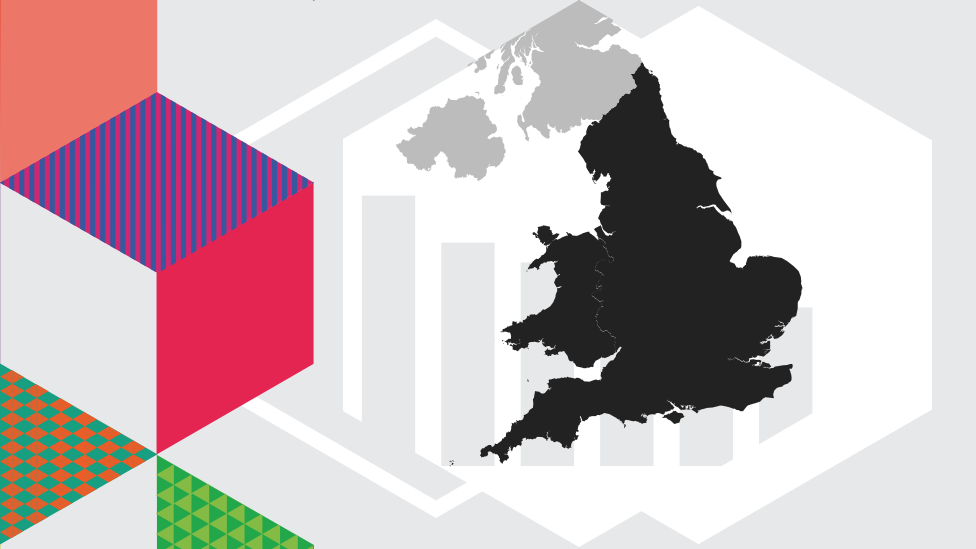
- Published
The Conservatives have lost ground at the local elections in England, losing almost as many councillors as they retained and ending up in third place behind the Liberal Democrats.
Labour won more than 1,000 of the 2,660 council seats up for election and nine out of ten regional mayor contests.
These included a very close race in the West Midlands in which Conservative incumbent Andy Street lost his post.
The Conservatives also lost the Blackpool South by-election to Labour. However, Ben Houchen was re-elected mayor of Tees Valley.
Council seats
Labour won 1,158 seats in the 107 council elections across England, an increase of 186 councillors. The party won control of 51 councils, a net gain of eight.
The Liberal Democrats increased their number of councillors by 104 to 522 and their number of councils by two to 12.
The Conservatives were always likely to lose councillors at this election, as the last time these seats were contested was in 2021 when the party was doing well in the polls in the context of a successful Covid vaccine roll out.
They ended up with 515 councillors this time round, a fall of 474 on 2021. And they lost ten councils, holding on to just six.
In total, 20 councils changed hands, with Labour gaining control of areas including Milton Keynes and Hartlepool.
The Liberal Democrats took control of Tunbridge Wells and Dorset.
No party now has control of Basildon and North East Lincolnshire councils after the Conservatives lost seats in both areas.
In Oldham, where two Labour councillors quit the party over its stance on Gaza earlier this year, Labour lost control of the council. The party also lost control of Kirklees council.
The Conservative lost the most council seats in Havant and Gloucester.
You can see where different parties have lost seats by selecting them in the map menu below.
Reform UK won two seats in Havant and took around 11% of the vote in the areas where it is standing. Conservative vote share is down 19 points in those areas.
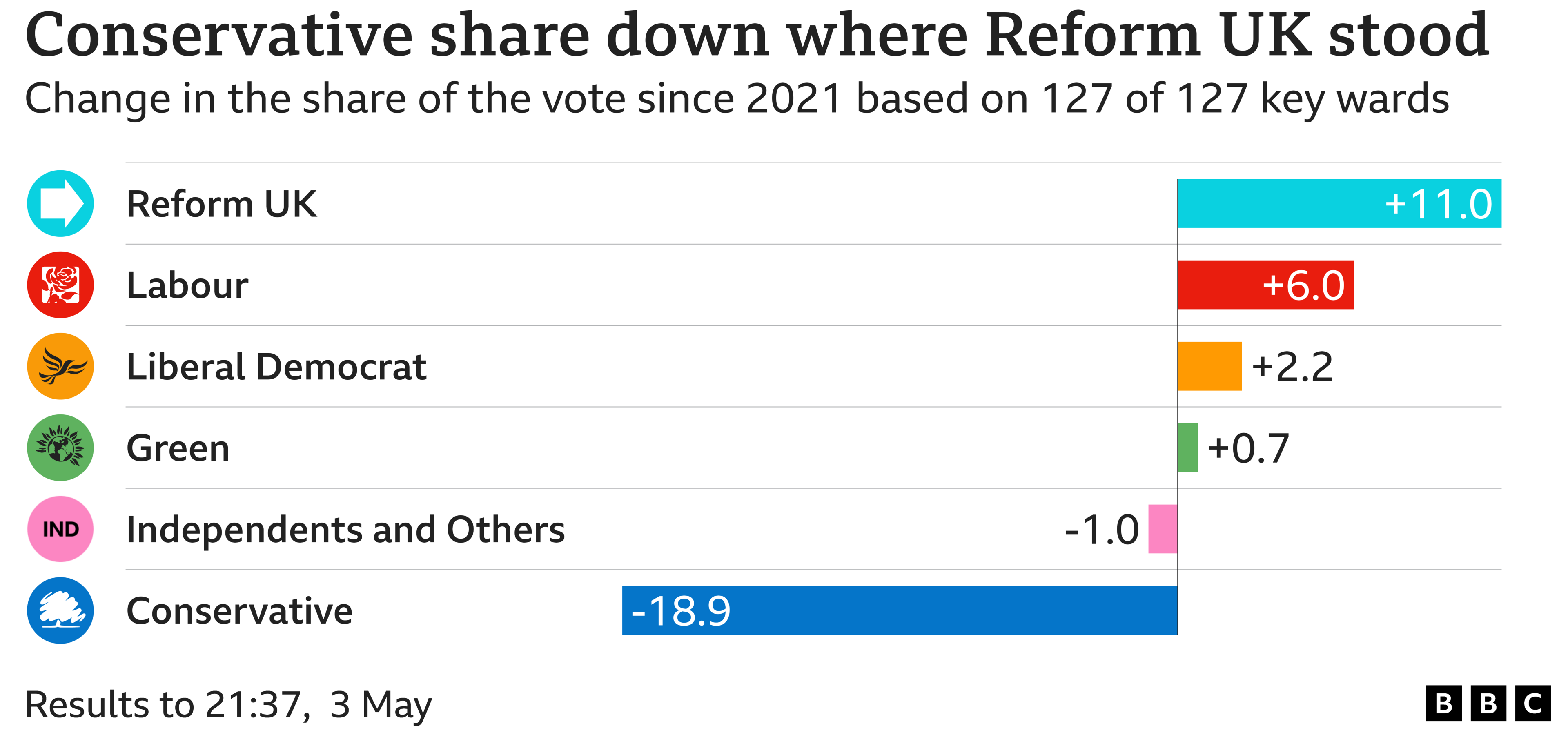
The BBC’s projected national share gives an estimate of how the country would have voted if everywhere had had a local election. It puts the Conservatives’ tally on 25%.
That represents a one point drop on the same estimate last year and equals the record low previously recorded in 2013 and 1995.
However, Labour’s projected share has also fallen a point on last year to 34%, meaning the party’s nine point lead over their principal rivals has not changed.
In a relatively modest performance, the Liberal Democrats were on 17%, down three points on last year.
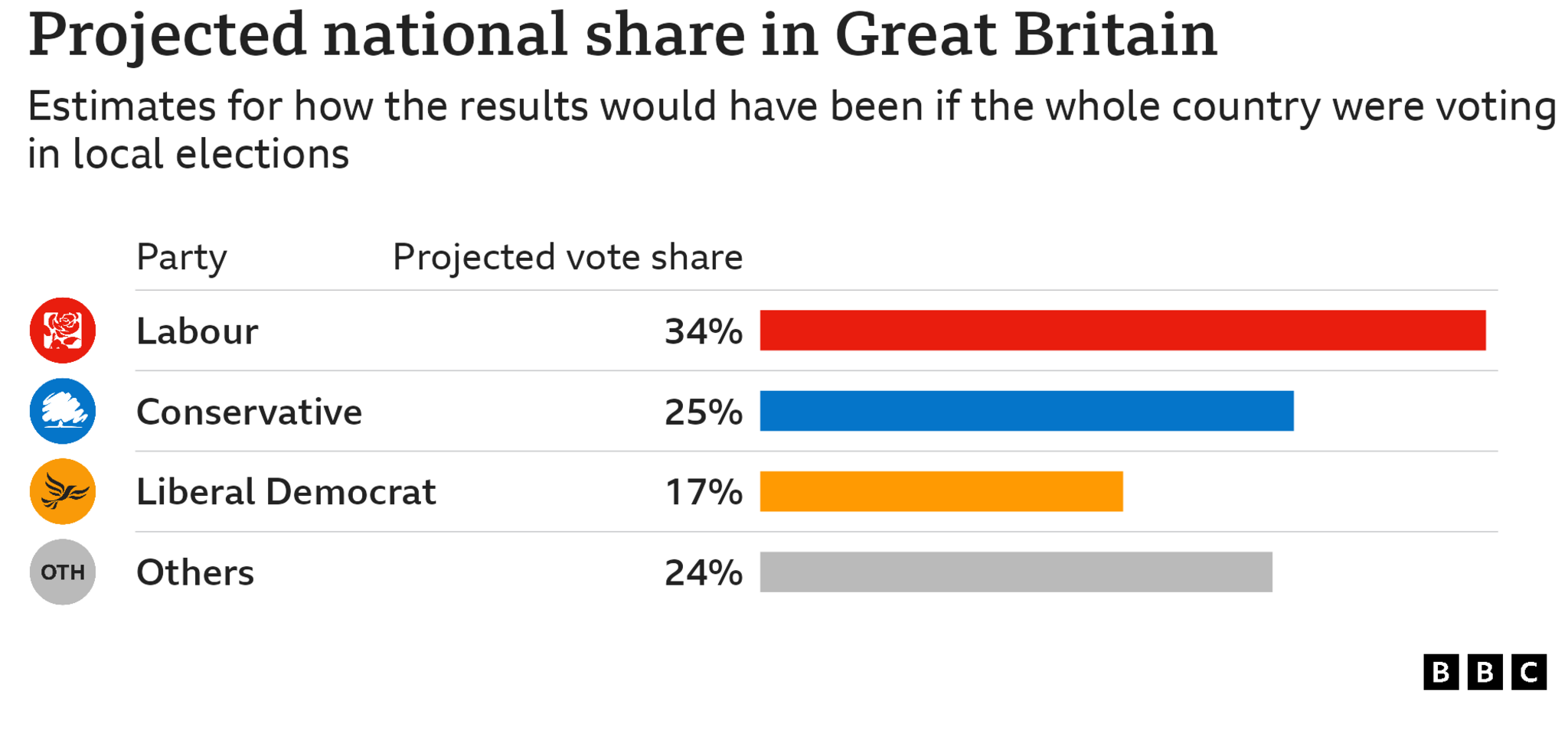
Analysis from Sir John Curtice
Curtice: Conservatives remain in deep electoral trouble
- Published3 May 2024
Sir John Curtice: Do local election results point to a hung Parliament?
- Published6 May 2024
Mayoral races
Away from the council elections, much political attention was focused on the regional mayor contests.
Mayors were up for election in ten areas, three of them new, plus the key role of Mayor of London.
Labour candidates were re-elected in five races, and won the three new mayoralties: the East Midlands, the North East and York & North Yorkshire.
For the Conservatives, Ben Houchen comfortably retained his Tees Valley seat, although with a reduced share of the vote.
However, in the other mayoral race the Tories had hoped to win, the West Midlands, Labour's Richard Parker beat the sitting mayor, Andy Street, in a very close result.
The contest came down to just 1,508 votes out of almost 600,000 ballots cast.
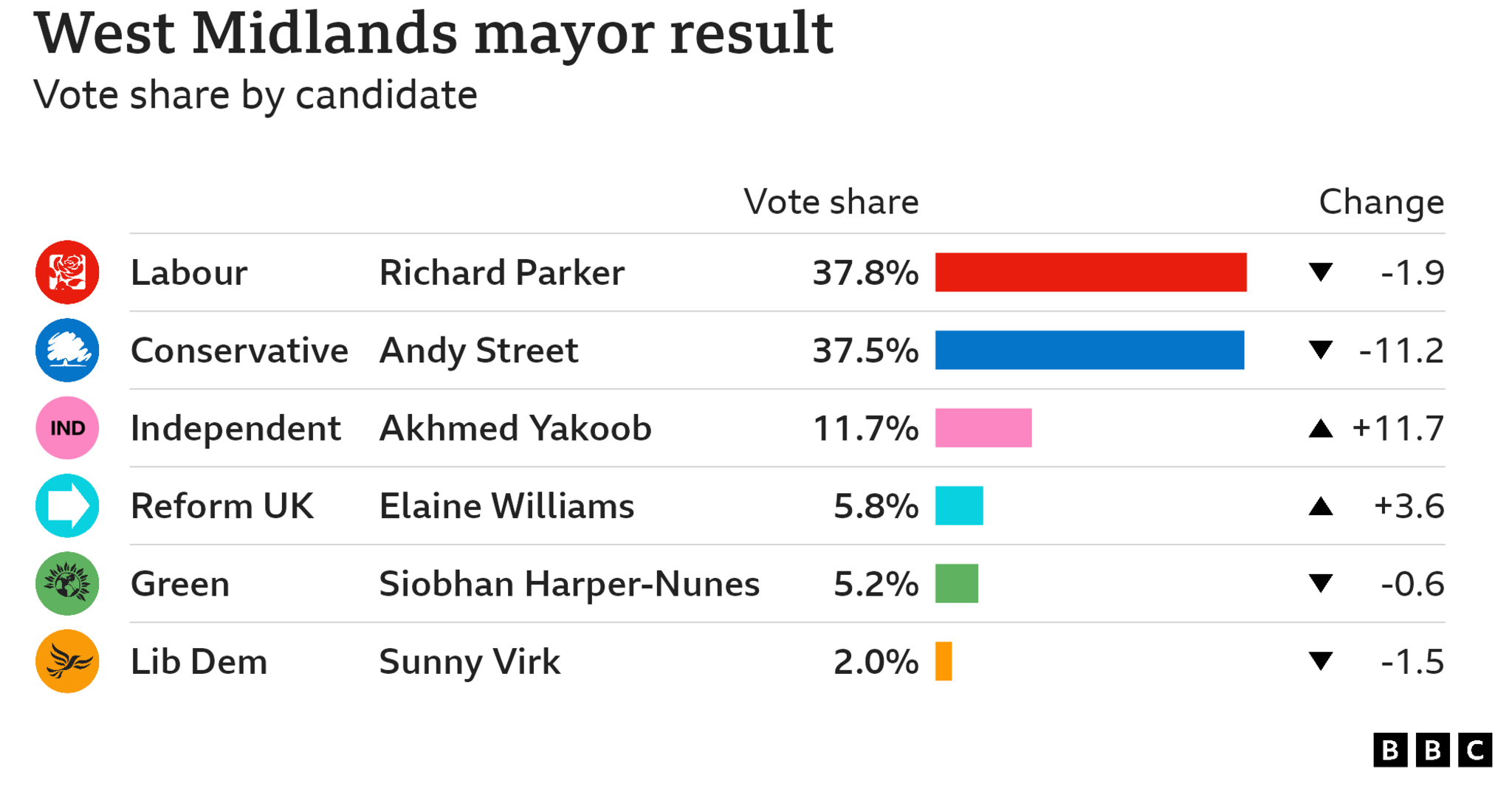
Earlier, Labour’s Sadiq Khan won a third term as Mayor of London, taking over a million votes in the capital and increasing his share of the vote over the Conservative candidate.
Mr Khan took 44% of the vote, up almost four points. His Conservative rival Susan Hall was 11 points behind on 33%, with the Lib Dems and Greens on 6% each.
London mayor votes are counted by each London Assembly area so we know how different constituencies voted.
Most areas voted in the same way as the last mayoral election in 2021 but two, South West and West Central, switched to Labour majorities from Conservative last time.
Mr Khan won in nine of the 14 constituencies. You can explore the result in each by tapping or rolling over the map below.
By-election close race for second
Labour won the Blackpool South by-election with a resounding 59% share of the vote. Turnout was 32% which was lower than the last election when it was 57%.
Reform came a very close third to the Conservatives with only 117 votes difference.
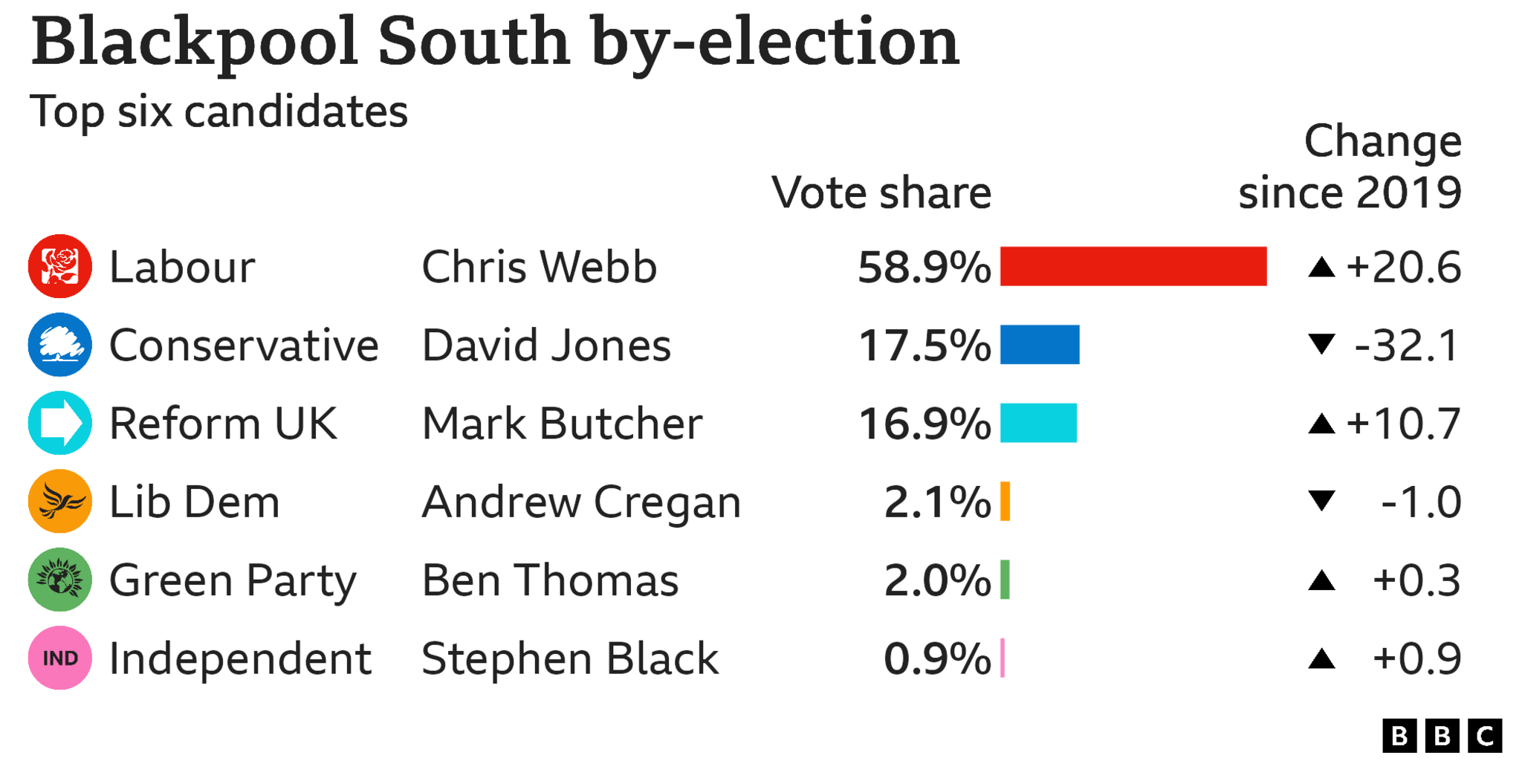
Regional picture
The overall pattern of Conservative council seat losses and Labour gains is repeated across England. Although Labour lost council seats in the North West, overall.
The Lib Dems made gains, with their strongest showing in the South East where they have increased their number of councillors by 48.
Labour has gained ten police and crime commissioners from the Conservatives and now has 17 while the Tories have 19. Plaid Cymru have held onto Dyfed-Powys .
Produced by Wesley Stephenson, Christine Jeavans, Alison Benjamin, Rob England, Becky Dale, and John Walton. Lookup produced by Callum Thomson, Steven Connor, Scott Jarvis, Marcos Gurgel, Alex Nicolaides, Matthew Taylor, Jana Tauschinski, Debie Loizou, Prina Shah, Holly Frampton, Adam Allen, Preeti Vaghela
